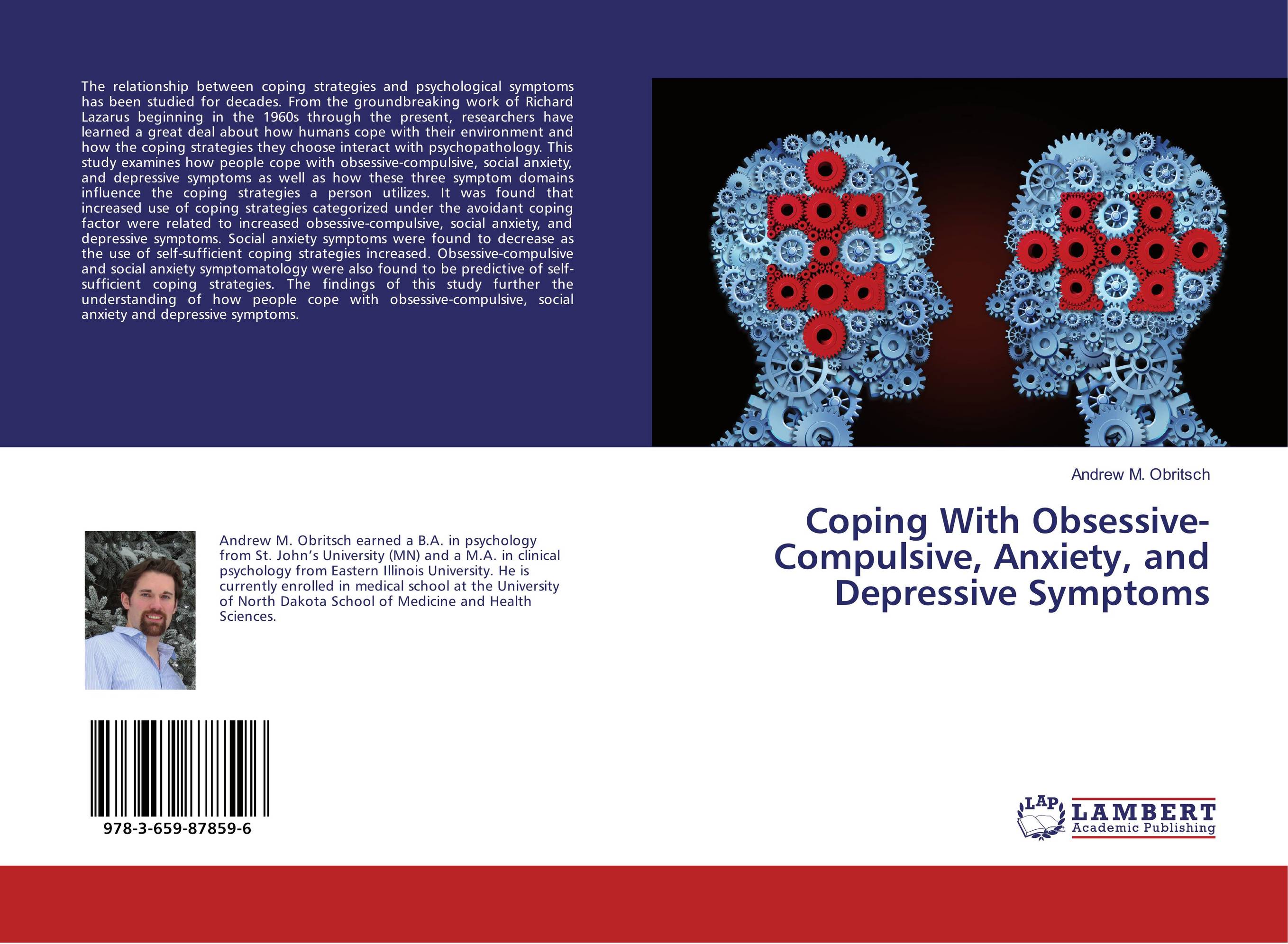| Поиск по каталогу |
|
(строгое соответствие)
|
- Профессиональная
- Научно-популярная
- Художественная
- Публицистика
- Детская
- Искусство
- Хобби, семья, дом
- Спорт
- Путеводители
- Блокноты, тетради, открытки
Coping With Obsessive-Compulsive, Anxiety, and Depressive Symptoms.

В наличии
| Местонахождение: Алматы | Состояние экземпляра: новый |

Бумажная
версия
версия
Автор: Andrew M. Obritsch
ISBN: 9783659878596
Год издания: 2016
Формат книги: 60×90/16 (145×215 мм)
Количество страниц: 60
Издательство: LAP LAMBERT Academic Publishing
Цена: 23208 тг
Положить в корзину
| Способы доставки в город Алматы * комплектация (срок до отгрузки) не более 2 рабочих дней |
| Самовывоз из города Алматы (пункты самовывоза партнёра CDEK) |
| Курьерская доставка CDEK из города Москва |
| Доставка Почтой России из города Москва |
Аннотация: The relationship between coping strategies and psychological symptoms has been studied for decades. From the groundbreaking work of Richard Lazarus beginning in the 1960s through the present, researchers have learned a great deal about how humans cope with their environment and how the coping strategies they choose interact with psychopathology. This study examines how people cope with obsessive-compulsive, social anxiety, and depressive symptoms as well as how these three symptom domains influence the coping strategies a person utilizes. It was found that increased use of coping strategies categorized under the avoidant coping factor were related to increased obsessive-compulsive, social anxiety, and depressive symptoms. Social anxiety symptoms were found to decrease as the use of self-sufficient coping strategies increased. Obsessive-compulsive and social anxiety symptomatology were also found to be predictive of self-sufficient coping strategies. The findings of this study further the understanding of how people cope with obsessive-compulsive, social anxiety and depressive symptoms.
Ключевые слова: Coping, depression, social anxiety, obsessive-compulsive



